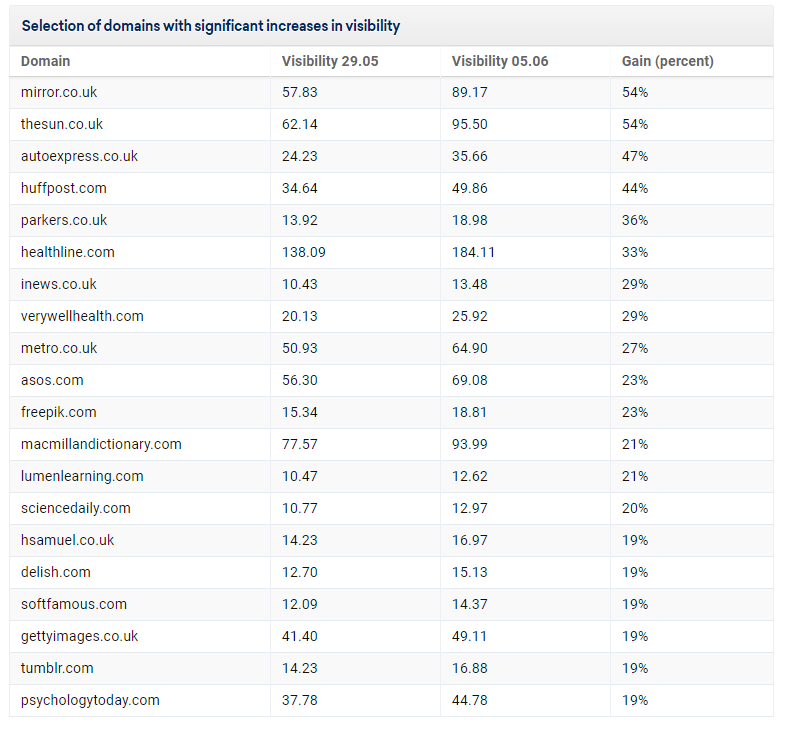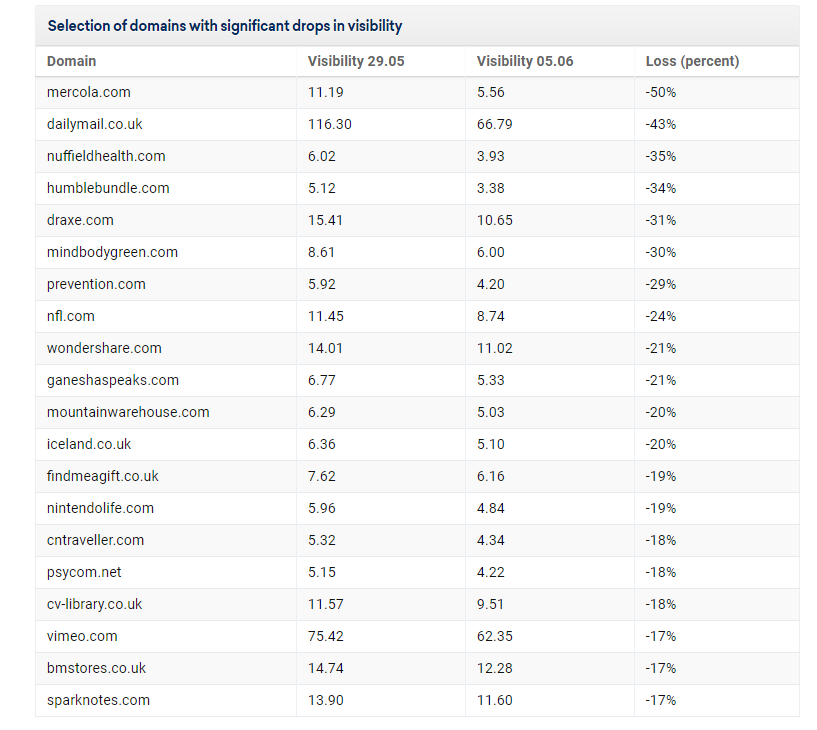Why did the Daily Mail Lose 50% organic traffic? Google’s latest Core Algorithm update
It is estimated that Google handles over 2 trillion searches a year, meaning potentially big business for companies with a strong online presence. If you’re looking for a slice of the digital pie, then you are partially at the mercy of Google’s Search Algorithm and Ranking System which, in short, determines the most relevant results to provide relating to a user’s search query. While the algorithm is updated and altered regularly with minor updates, major updates are far less frequent with there usually being a few a year.
Google June 2019 Core Algorithm Update
A couple of weeks ago, on Monday June 3rd, Google began rolling out a core update to its search algorithm and this finished rolling on Saturday June 8th. It is unusual for Google to announce updates to its core algorithm, but in this case there was a public tweet from Google’s SearchLiason account letting users know that the update was going to happen. The current theory behind these core updates is that there is a move away from the classic manual algorithms to a more machine-generated process.
What’s been seen so far?
Sistrix, an SEO toolset provider, has released some early data on the core update and the initial effects seen on visibility across a range of websites. According to Sistrix, “news media sites are noticeable among the visibility winners of the update along with a few retail sites, health-related and image sites.” Examples of sites that saw a major uplift in visibility according to Sistrix were The Mirror and The Sun, whilst sites such as The Daily Mail saw a large decrease in their visibility. MailOnline SEO Director admitting publicly that the site “lost 50% of daily traffic” because of this Google update.
Here are some of the initial domains that have experienced a significant increase in visibility within Sistrix’s Index:

And here are some of the domains that have had significant decreases in visibility so far:

So, what’s Google stance on this? Well, it’s hard to say. They are often coy about what core updates involve and the search algorithms. However, Google does suggest asking certain questions about your own website and the content included in it. Some examples are:
- Would you trust the information presented in this article?
- Is this article written by an expert or enthusiast who knows the topic well, or is it more shallow in nature?
- Does the site have duplicate, overlapping, or redundant articles on the same or similar topics with slightly different keyword variations?
- Would you be comfortable giving your credit card information to this site?
- Are the topics driven by genuine interests of readers of the site, or does the site generate content by attempting to guess what might rank well in search engines?
- Does the page provide substantial value when compared to other pages in search results?”
These questions could be used to gauge how your site might potentially rank in Google, and other search engines, based on the site content. And these might be potential indicators of why certain sites have experienced large drops in visibility, and others large increases.
It is important to remember that quality, engaging and reliable content is of real importance when trying to rank highly in organic search and should definitely not be overlooked.


